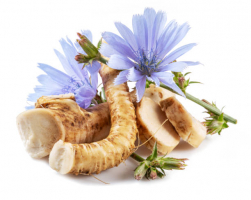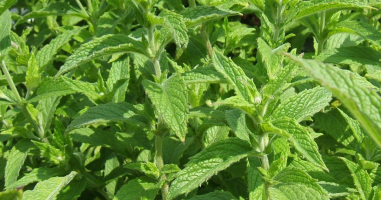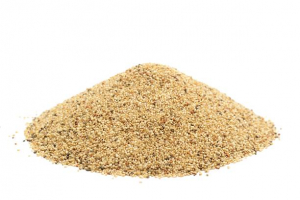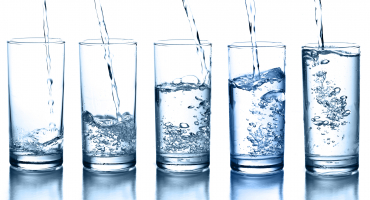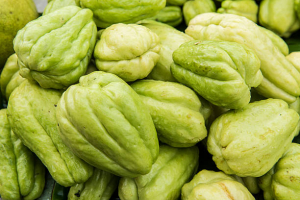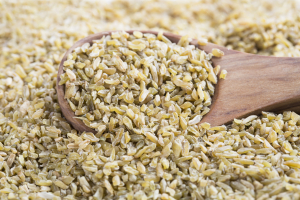Top 8 Health Benefits of Artichokes and Artichoke Extract
Artichokes, while commonly considered a vegetable, are actually a type of thistle. This Mediterranean herb has been used for ages for its potential therapeutic ... read more...benefits. It is said to have health benefits such as decreased blood sugar levels, better digestion, heart health, and liver health. Artichoke extract, which has high amounts of plant components, is also becoming increasingly popular as a supplement. Here are the best artichoke and artichoke extract health benefits.
-
One medium-sized cooked artichoke has more than 20% of the RDV for folate and vitamin K, as well as more than 10% of the RDV for vitamin C, magnesium, manganese, and potassium. A lack of folate has been related to an increased risk of depression and memory issues. Vitamin K, which aids in blood clotting, is also essential for bone production; a deficiency has been related to an increased risk of fracture. Vitamin C, which also functions as an antioxidant, is required for DNA repair, immunological function, and collagen formation.
Magnesium has been demonstrated to assist women to fight depression, improve learning and memory, and sleep. A higher magnesium intake has also been demonstrated to boost strength, oxygen uptake, energy generation, and electrolyte balance in athletes. Manganese is also beneficial to collagen formation and bone health. Furthermore, potassium is required for normal heart function, muscular contractions, and blood pressure regulation. That's an excellent nutrient profile, especially given that a whole artichoke contains only 60 calories and 3.5 grams of protein.
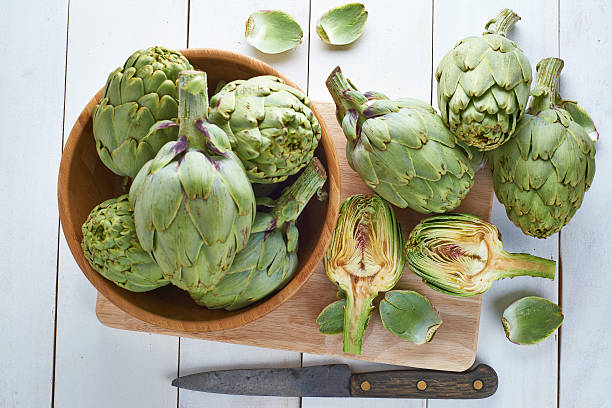
Loaded With Nutrients 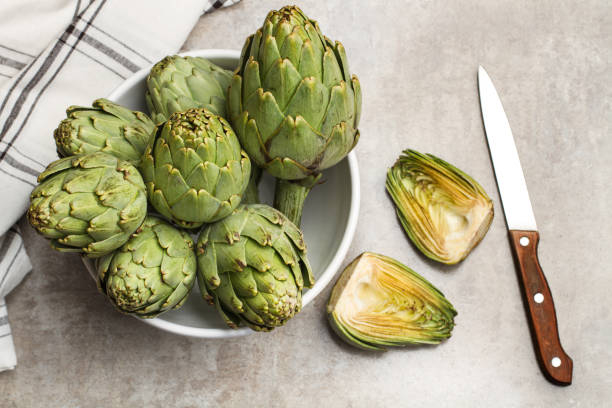
Loaded With Nutrients -
Artichoke leaf extract may be beneficial to cholesterol levels. A big study of over 700 patients discovered that taking artichoke leaf extract daily for 5-13 weeks reduced total and "bad" LDL cholesterol. One trial of 143 adults with high cholesterol found that taking artichoke leaf extract daily for six weeks reduced total and "bad" LDL cholesterol by 18.5% and 22.9%, respectively. In addition, an animal study found that frequent feeding of artichoke extract reduced "bad" LDL cholesterol by 30% and triglycerides by 22%.
Furthermore, in adults with elevated cholesterol, regular use of artichoke extract may increase "good" HDL cholesterol. Artichoke extract influences cholesterol in two ways. First, artichokes contain luteolin, an antioxidant that reduces the synthesis of cholesterol. Second, artichoke leaf extract stimulates your body's metabolism of cholesterol, resulting in reduced overall levels.
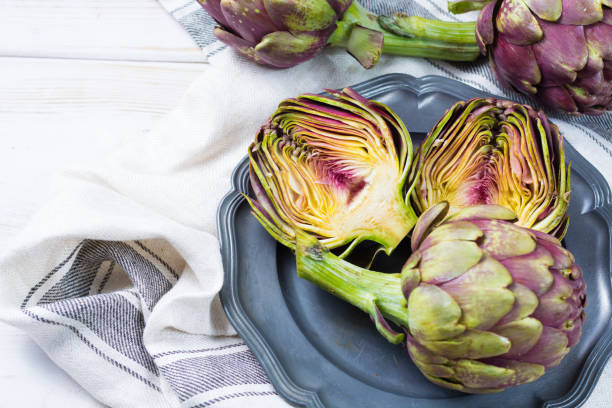
May Lower ‘Bad’ LDL Cholesterol and Increase ‘Good’ HDL Cholesterol 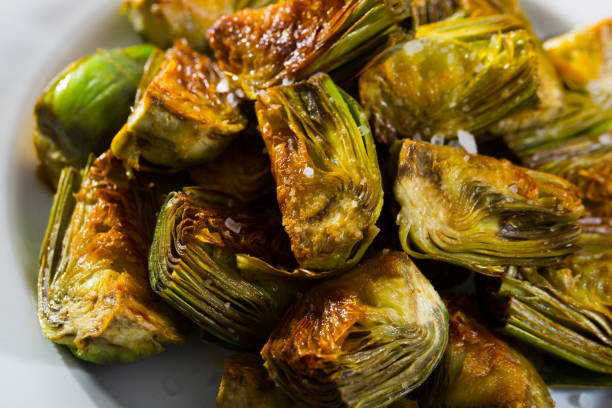
May Lower ‘Bad’ LDL Cholesterol and Increase ‘Good’ HDL Cholesterol -
People with high blood pressure may benefit from artichoke extract. One study indicated that taking artichoke extract daily for 12 weeks lowered diastolic and systolic blood pressure by an average of 2.76 and 2.85 mmHg, respectively, in 98 men with high blood pressure. It is unclear how artichoke extract lowers blood pressure.
However, in vitro and animal studies show that artichoke extract stimulates the enzyme eNOS, which aids in blood vessel dilation. Furthermore, artichokes are high in potassium, which aids with blood pressure regulation. However, because the artichoke extract utilized in this research is highly concentrated, it is uncertain whether eating whole artichokes provides the same benefits.
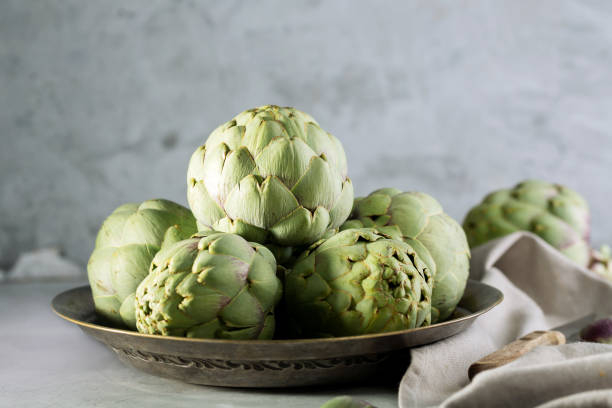
May Help Regulate Blood Pressure 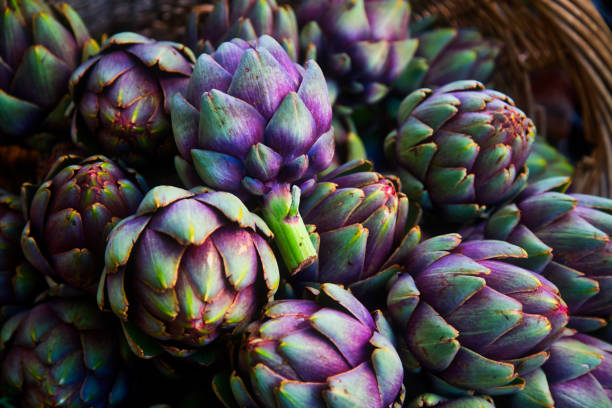
May Help Regulate Blood Pressure -
Artichoke leaf extract may help to protect your liver and support the formation of new tissue. It also promotes bile production, which aids in the removal of toxic poisons from your liver. In one study, rats given artichoke extract had less liver damage, higher antioxidant levels, and improved liver function following an induced drug overdose than rats not given artichoke extract. Human studies demonstrate that it has a good effect on liver health.
One study of 90 persons with the non-alcoholic fatty liver disease found that taking 600 mg of artichoke extract daily for two months improved liver function. Another study found that taking artichoke extract daily for two months reduced liver inflammation and fat deposition in obese persons with the non-alcoholic fatty liver disease compared to not taking artichoke extract. Scientists believe that two antioxidants present in artichokes, cynarin, and silymarin, are responsible for some of these advantages. More research is needed to confirm the role of artichoke extract in liver disease treatment.

May Improve Liver Health 
May Improve Liver Health -
Artichokes are high in fiber, which helps to keep your digestive system healthy by increasing friendly gut flora, lowering your risk of certain bowel malignancies, and relieving constipation and diarrhea. Inulin, a form of fiber that works as a prebiotic, is found in artichokes. In one study, 12 adults who ingested an artichoke extract containing inulin every day for three weeks saw an improvement in their gut microbes. Artichoke extract may also help with indigestion symptoms like bloating, nausea, and heartburn.
In a trial of 247 participants with indigestion, using artichoke leaf extract daily for six weeks improved symptoms like gas and uncomfortable feelings of fullness compared to not taking artichoke leaf extract. Cynarin, a naturally occurring component in artichokes, may be responsible for these beneficial effects by boosting bile production, speeding gastrointestinal movement, and aiding fat absorption.
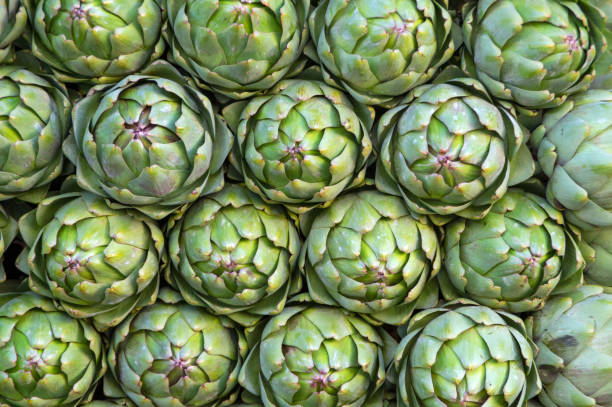
May Improve Digestive Health 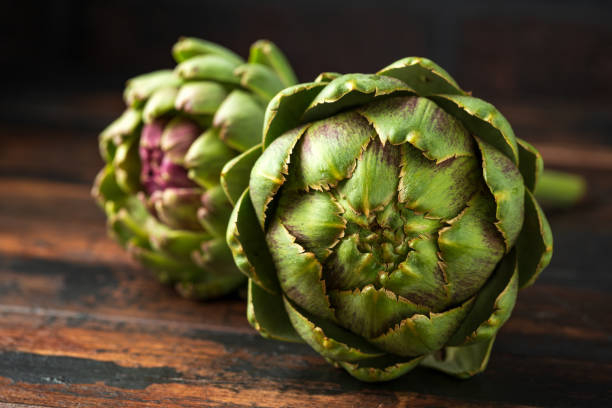
May Improve Digestive Health -
Irritable bowel syndrome (IBS) is a digestive disorder that causes stomach pain, cramps, diarrhea, bloating, constipation, and flatulence. In one study, taking artichoke leaf extract daily for six weeks helped relieve symptoms in persons with IBS. Furthermore, 96% of participants said the extract was as effective as, if not more successful than, traditional IBS therapies like antidiarrheals and laxatives. Another study found that taking 1-2 capsules of artichoke leaf extract daily for two months reduced symptoms by 26% and improved quality of life by 20% in 208 patients with IBS.
Artichoke extract may help with symptoms in a variety of ways. Certain artichoke chemicals have antispasmodic effects. This means they can aid with IBS muscle spasms, gut bacteria balance, and inflammation reduction. While artichoke extract appears to be effective in treating IBS symptoms, larger human research is required.
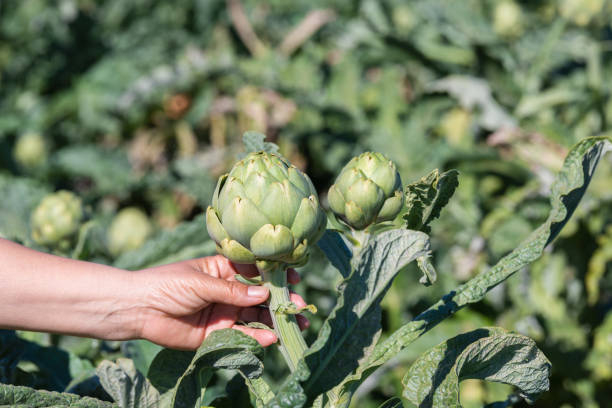
May Ease Symptoms of Irritable Bowel Syndrome 
May Ease Symptoms of Irritable Bowel Syndrome -
Artichokes and artichoke leaf extract may aid with blood sugar regulation. One research of 39 overweight persons revealed that taking kidney beans and artichoke extract twice a day for two months reduced fasting blood sugar levels compared to not taking it. It is unclear, however, how much of this benefit was related to the artichoke extract itself.
Another small study found that eating cooked artichoke before a meal decreased blood sugar and insulin levels 30 minutes later. This effect was observed only in healthy persons who did not have metabolic syndrome. It is unclear how artichoke extract lowers blood sugar levels. However, artichoke extract has been demonstrated to inhibit the action of alpha-glucosidase, an enzyme that converts starch to glucose, potentially affecting blood sugar levels.
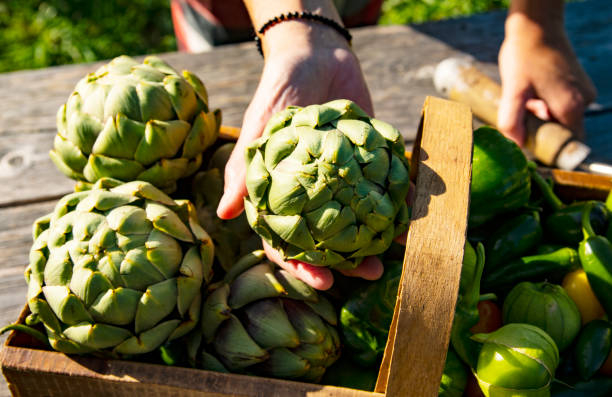
May Help Lower Blood Sugar 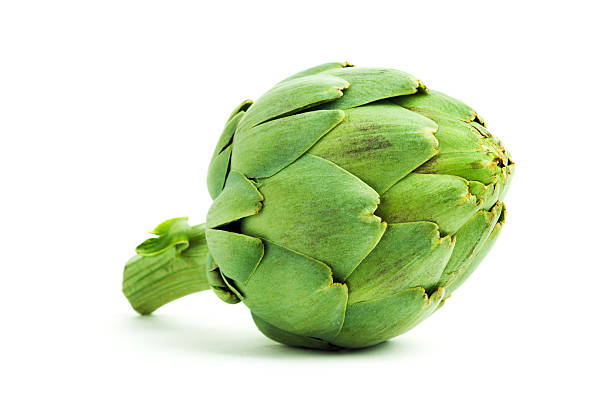
May Help Lower Blood Sugar -
The green artichokes you find at the market are called globe artichokes, and they have nothing to do with Jerusalem artichokes. However, considering the similarity in names, it's worth discussing the benefits of this vegetable as well. Jerusalem artichokes, which are not green, are linked to sunflowers and are also known as sunchokes. These tubers, which resemble white potatoes and ginger root, can be either raw or cooked. They're an excellent source of inulin, a prebiotic with numerous advantages.
Prebiotics nourish beneficial bacteria in the gut, which have been linked to improved digestive health, immunological function, and mood. Inulin has also been found to improve mineral absorption, such as calcium and magnesium, and to aid in the synthesis of B vitamins. Inulin has also been related to the protection of malignancies such as breast and colorectal cancer.
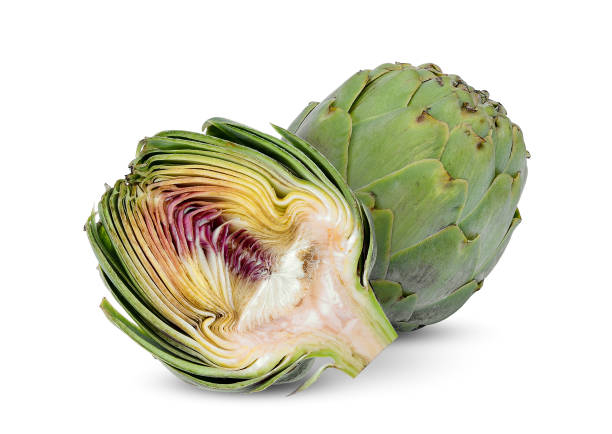
Provide Protective Prebiotics 
Provide Protective Prebiotics











